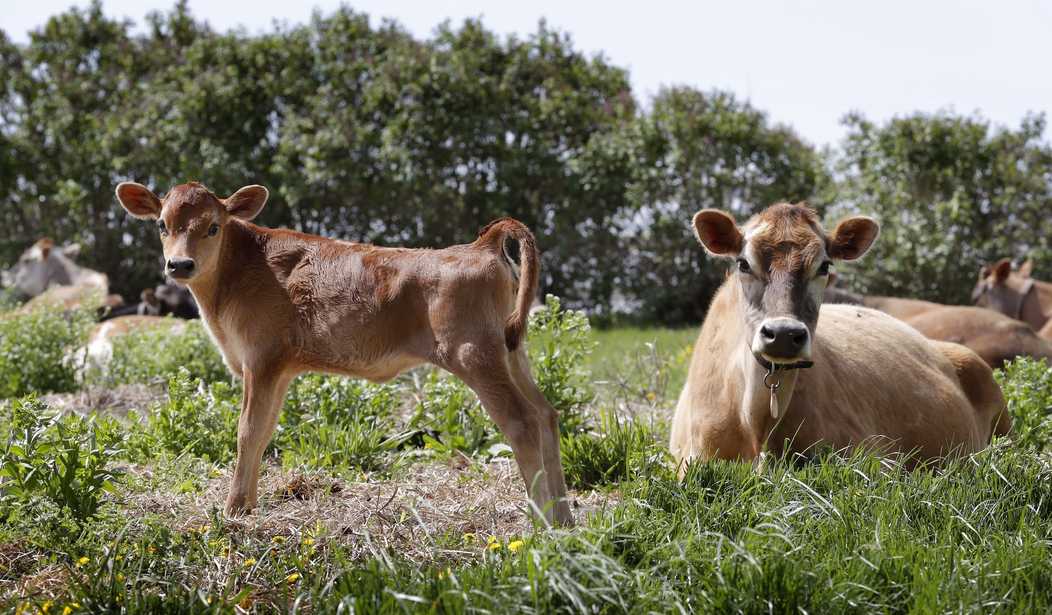Germany is still caught up in the demands of the climate change lobby to reduce its carbon footprint drastically in the coming years. One part of this initiative, similar to calls we’ve seen from activists in the United States, was a mandate to reduce all livestock on German farms by 50%. Farmers have been protesting the decision in the same way they recently did in the Netherlands this summer, but the initiative is moving forward beginning this year. Now, to the great surprise of nobody who has been paying attention, the German Meat Industry Association has reported that the country will be facing a severe meat shortage by the time spring arrives and consumers should expect prices to skyrocket, potentially doubling in some cases. It would appear that some people in the German government have never heard of something called the law of supply and demand. But at least they’re going to defeat global warming, right? (Financial Trends)
Die Welt, citing the German Meat Industry Association (VDF), reported this week that within the next four to six months Germany will face a meat shortage, and prices will skyrocket.
Hubert Kelliger, a VDF board member and head of group sales at meat seller Westfleisch said, “In four, five, six months we will have gaps on the shelves.”
Pork is expected to experience the worst shortages. The issues in meat supply are due to Berlin insisting on reducing the numbers of livestock by 50% to reduce global warming emissions. Experts are warning this policy will result in mass shutdown of meat-producing companies, and that will produce a 40% rise in the price of meat.
Shooting that large of a hole in the supply chain is projected to produce a cascade of negative effects. The anticipated shift will result in more than just the price of pork and beef going through the roof. German markets will have to rely more heavily on imported meat, driving costs up further while improving the economies of their neighbors that continue with normal ranching.
But on top of that, the domestic supply of natural fertilizer will be cut in half. This is projected to lead to reductions in the volume of vegetables that will be produced. The lack of natural fertilizers (i.e. manure) will force farmers to switch to more expensive artificial fertilizers. As a bonus to all of this badness and madness, the artificial fertilizers require the use of large amounts of ammonia (which is converted to urea), and all of that ammonia is produced via a process that requires the burning of significant amounts of natural gas, thereby negating much of the carbon reduction goals that are driving this decision.
So to sum all of this up, in its efforts to reduce its carbon footprint, Germany will bankrupt many of its farmers, have less meat available for consumers who will be paying nearly twice as much for it, and they’ll significantly increase the amount of fossil fuels they burn. And all of this will be happening at a time when German consumers are already struggling with high rates of inflation and rising prices. Also, they will be much more dependent on imports from other countries, so any disruptions in the supply chain will hit them all the harder.
Didn’t the Germans notice what happened when they tried to shut down fossil fuels and their nuclear power plants? Some of them had the nerve to seem surprised when they were forced to begin turning out the lights and warnings were issued about people potentially freezing to death this winter.
I find it difficult to have too much sympathy for Germany at this point. The war in Ukraine and the resultant rejection of Russian oil and gas has certainly produced undesirable results in that country. But these climate initiatives are only adding to their misery on top of the anticipated shortages. How many self-inflicted wounds are German voters willing to put up with before they start voting all of the climate crazies out of office?








Join the conversation as a VIP Member